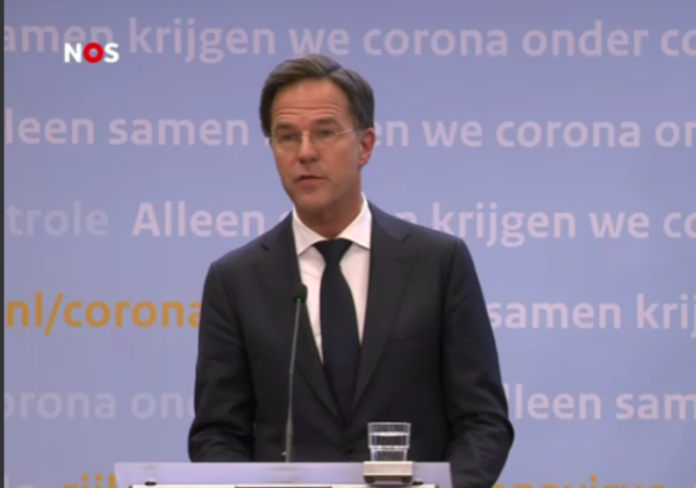Don’t travel overseas – not for Christmas, and not early next year.
Even if the country you want to go to is designated ‘yellow’ (safe, but risky to visit) by the Department of Foreign Affairs. That’s what the Dutch government advises. This measure is intended to curb the further spread of COVID-19.
This novel coronavirus has currently laid siege to Europe again. Many people initially got infected after going on winter holidays. The cabinet wants to prevent that from happening again this winter.
Also, from tomorrow at 20:00, libraries, cinemas, theaters, museums, amusement parks, and zoos will be closed for two weeks. Gyms and sports schools can remain open, but saunas and swimming pools must close.
Group size
People may only be out and about in groups of two to four. The number of guests at weddings and funerals has been reduced too. At these 20 and 30 people, respectively. will be allowed.
In regions where there are many new infections, the government is considering setting a curfew. That’s according to Prime Minister Mark Rutte at this evening’s press conference. The cabinet is also thinking of further restricting freedoms in those regions, such as closing stores and even schools.
Rutte again urged everyone to stay at home as much as possible. “Most people are sticking to the rules,” said Rutte. “In the next few months, people should pay even more attention to each other. We must take care of each other.”
The Prime Minister isn’t in favor of even stricter measures. “A full lockdown is too much. It would be tough on the economy and on the country’s people. Doing that for the whole of the Netherlands is not necessary now.”
Number down but not enough
Hugo de Jonge, the Dutch Minister of Health, added, “The number of new infections is finally dropping, but the situation isn’t nearly as good as we’d like. That’s why we’re bringing in these additional regulations. These two stricter weeks are precisely because we want to be able to spend Christmas with those who are most precious to us.”
He says there were 46,000 just in the past week. “That’s far too much. Hospitals are under pressure.” The number of ICU stays are increasing slower than in the first wave, but De Jonge says it’s predicted that there’ll be 25% more ICU admissions than then.
He added that this virus has taken hold in one in four care homes. The minister says that people must abide by the rules, as hard as they are, in “solidarity with those in care homes, hospital staff and the most vulnerable among us.”
Translator: Melinda Walraven











